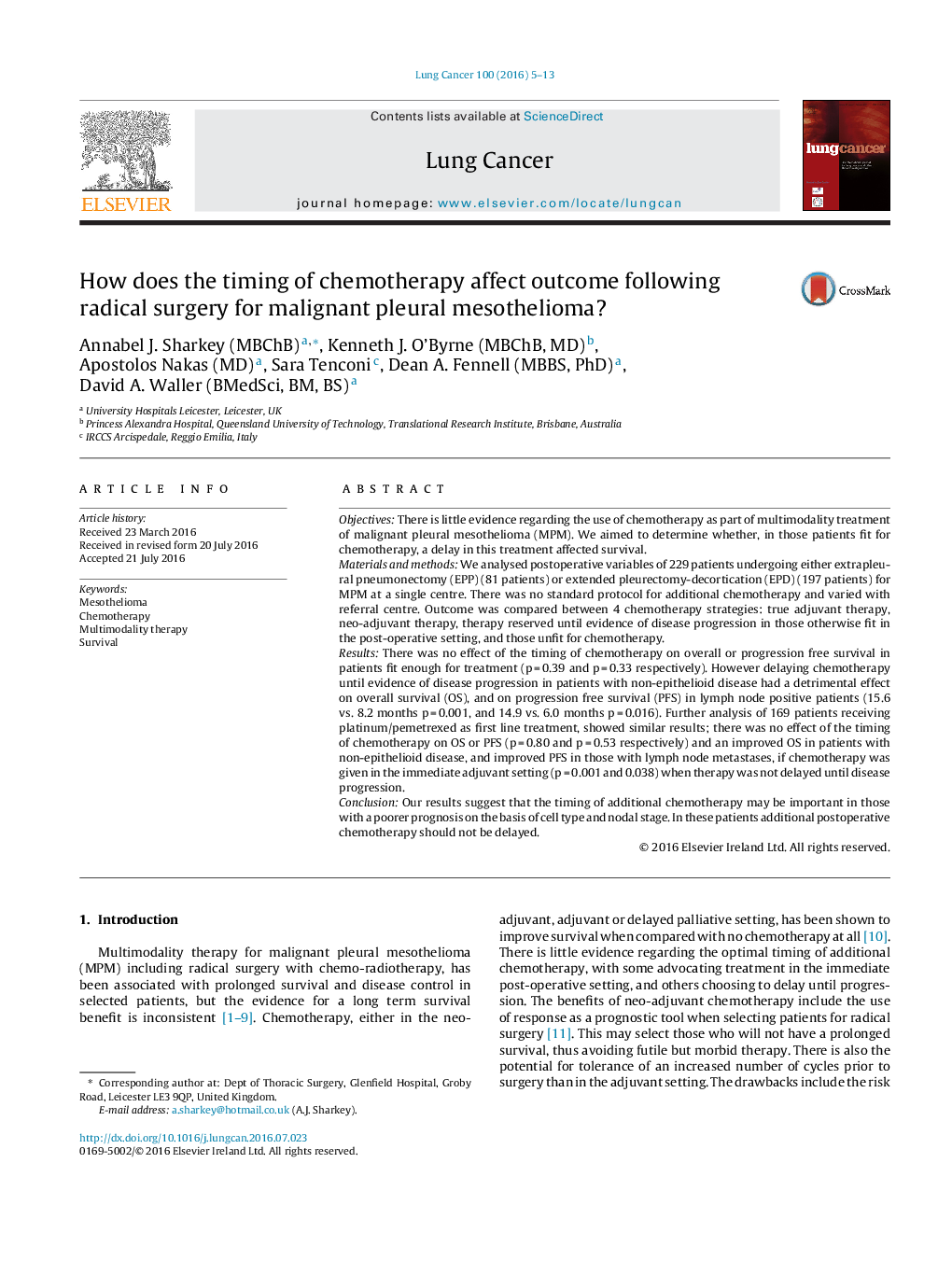| Article ID | Journal | Published Year | Pages | File Type |
|---|---|---|---|---|
| 2140389 | Lung Cancer | 2016 | 9 Pages |
•Giving chemotherapy as part of multimodality therapy has been shown to improve survival.•No effect of the timing of chemotherapy on survival in this retrospective analysis.•The only improved survival was in subgroup analyses.•In patients with non-epithelioid disease, adjuvant chemotherapy improved survival.•In those with nodal disease adjuvant chemotherapy improved progression free survival.
ObjectivesThere is little evidence regarding the use of chemotherapy as part of multimodality treatment of malignant pleural mesothelioma (MPM). We aimed to determine whether, in those patients fit for chemotherapy, a delay in this treatment affected survival.Materials and methodsWe analysed postoperative variables of 229 patients undergoing either extrapleural pneumonectomy (EPP) (81 patients) or extended pleurectomy-decortication (EPD) (197 patients) for MPM at a single centre. There was no standard protocol for additional chemotherapy and varied with referral centre. Outcome was compared between 4 chemotherapy strategies: true adjuvant therapy, neo-adjuvant therapy, therapy reserved until evidence of disease progression in those otherwise fit in the post-operative setting, and those unfit for chemotherapy.ResultsThere was no effect of the timing of chemotherapy on overall or progression free survival in patients fit enough for treatment (p = 0.39 and p = 0.33 respectively). However delaying chemotherapy until evidence of disease progression in patients with non-epithelioid disease had a detrimental effect on overall survival (OS), and on progression free survival (PFS) in lymph node positive patients (15.6 vs. 8.2 months p = 0.001, and 14.9 vs. 6.0 months p = 0.016). Further analysis of 169 patients receiving platinum/pemetrexed as first line treatment, showed similar results; there was no effect of the timing of chemotherapy on OS or PFS (p = 0.80 and p = 0.53 respectively) and an improved OS in patients with non-epithelioid disease, and improved PFS in those with lymph node metastases, if chemotherapy was given in the immediate adjuvant setting (p = 0.001 and 0.038) when therapy was not delayed until disease progression.ConclusionOur results suggest that the timing of additional chemotherapy may be important in those with a poorer prognosis on the basis of cell type and nodal stage. In these patients additional postoperative chemotherapy should not be delayed.
